
Diani Beach: Kenya's Coastal Gem
Diani Beach, located on the Indian Ocean coast of Kenya, is a paradise for beach lovers and adventure seekers alike. The white sandy beaches stretch for kilometers, flanked by lush green palm trees and crystal-clear waters. This picturesque setting makes it one of Kenya's most popular tourist destinations. The area is not just about stunning beaches; it is also rich in marine life. Snorkeling and diving are some of the best ways to explore the vibrant coral reefs and encounter marine creatures like dolphins and sea turtles. For those who prefer to stay above water, boat trips and windsurfing offer thrilling experiences. Diani Beach is also a haven for wildlife enthusiasts. The nearby Shimba Hills National Reserve offers a chance to see elephants, giraffes, and a variety of bird species. Whether you are a nature lover, an adventurer, or someone looking to relax, Diani Beach has something to offer everyone. Local culture adds another layer of charm to Diani Beach. The coastal town is home to the Digo people, who are known for their vibrant traditions and warm hospitality. Exploring local markets and tasting Swahili cuisine are experiences that shouldn't be missed. With its mix of natural beauty, exciting activities, and rich culture, Diani Beach provides a well-rounded travel experience that will leave you with unforgettable memories.
Local tips in Diani Beach
- Visit during the dry season, from December to March, for the best weather.
- Carry reef-safe sunscreen to protect the coral reefs while snorkeling or diving.
- Hire a local guide for wildlife tours in Shimba Hills National Reserve.
- Explore the local markets for unique souvenirs and fresh seafood.
- Try traditional Swahili dishes like biryani and seafood curry at local restaurants.
Diani Beach: Kenya's Coastal Gem
Diani Beach, located on the Indian Ocean coast of Kenya, is a paradise for beach lovers and adventure seekers alike. The white sandy beaches stretch for kilometers, flanked by lush green palm trees and crystal-clear waters. This picturesque setting makes it one of Kenya's most popular tourist destinations. The area is not just about stunning beaches; it is also rich in marine life. Snorkeling and diving are some of the best ways to explore the vibrant coral reefs and encounter marine creatures like dolphins and sea turtles. For those who prefer to stay above water, boat trips and windsurfing offer thrilling experiences. Diani Beach is also a haven for wildlife enthusiasts. The nearby Shimba Hills National Reserve offers a chance to see elephants, giraffes, and a variety of bird species. Whether you are a nature lover, an adventurer, or someone looking to relax, Diani Beach has something to offer everyone. Local culture adds another layer of charm to Diani Beach. The coastal town is home to the Digo people, who are known for their vibrant traditions and warm hospitality. Exploring local markets and tasting Swahili cuisine are experiences that shouldn't be missed. With its mix of natural beauty, exciting activities, and rich culture, Diani Beach provides a well-rounded travel experience that will leave you with unforgettable memories.
When is the best time to go to Diani Beach?
Iconic landmarks you can’t miss
Baobab Beach Resort & Spa
Escape to Baobab Beach Resort & Spa on Diani Beach for luxurious relaxation, stunning views, and unforgettable local experiences.
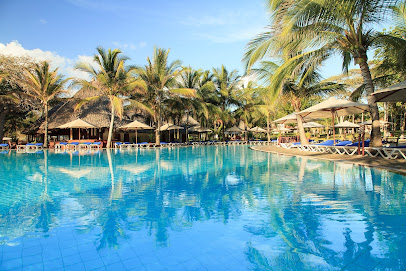
Swahili Beach Resort
Experience the ultimate beach getaway at Swahili Beach Resort, where luxury meets the azure waters of Diani Beach.
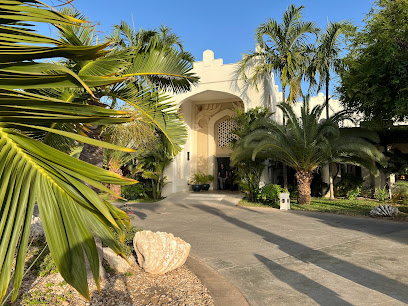
Southern Palms Beach Resort
Experience the tropical luxury of Southern Palms Beach Resort, where pristine beaches and unparalleled hospitality meet for an unforgettable holiday in Kenya.
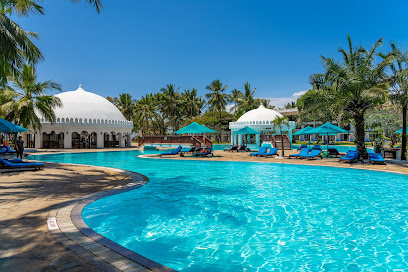
Diani Reef Beach Resort & Spa
Experience luxury and adventure at Diani Reef Beach Resort & Spa, your ultimate destination on the stunning Diani Beach in Kenya.
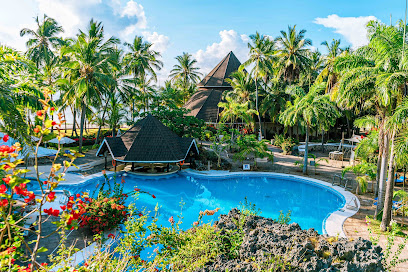
Diani Sea Lodge
Experience the tranquility of Diani Sea Lodge, a premier beach resort offering stunning ocean views, exciting activities, and a taste of Kenyan hospitality.

Nomad Beach Bar & Restaurant
Experience the best of Diani Beach at Nomad Beach Bar & Restaurant, where delicious cuisine meets stunning ocean views for an unforgettable dining experience.
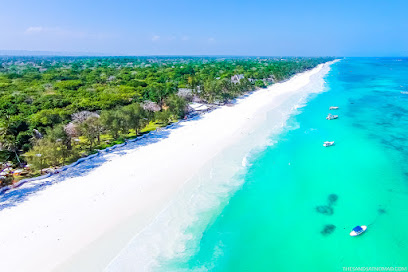
Nomad Beach Resort
Experience luxury and adventure at Nomad Beach Resort in Diani Beach, Kenya, where stunning views and vibrant nightlife await every traveler.

Ali Barbour's Cave Restaurant
Experience the magic of dining in a natural cave at Ali Barbour's Cave Restaurant, where exquisite cuisine meets enchanting ambiance in Mombasa.
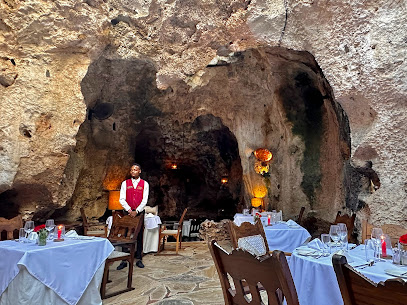
Bahari Dhow Beach Villas
Experience luxury and tranquility at Bahari Dhow Beach Villas, a perfect getaway on Diani Beach with stunning ocean views and top-notch amenities.
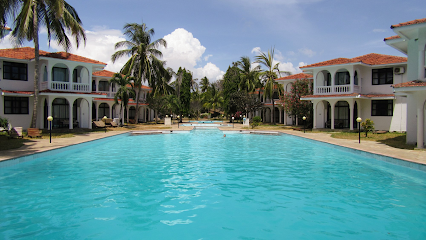
Tandoori Baharini lounge
Experience the flavors of India at Tandoori Baharini Lounge, a vibrant bar in Diani Beach offering delightful tandoori dishes and refreshing beverages.
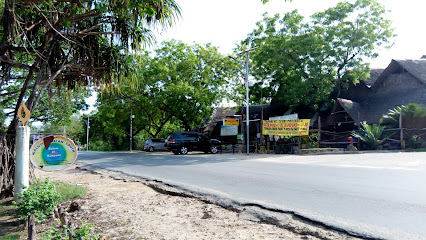
Tiki Bar
Experience the vibrant flavors and tropical ambiance of Tiki Bar in Diani Beach - your perfect dining destination on the Kenyan coast.
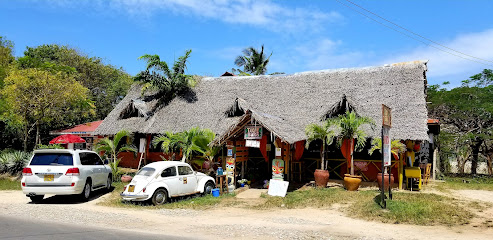
Shimba Hills National Reserve
Explore the diverse wildlife and stunning landscapes of Shimba Hills National Reserve, a gem in Kenya's coastal region perfect for nature lovers.
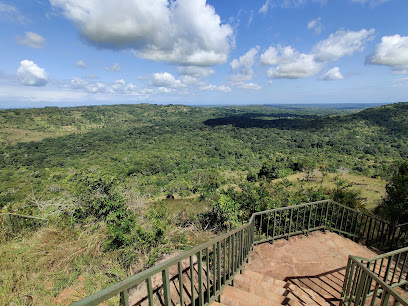
Diani Airport
Experience the charm of Diani Beach as you arrive at Diani Airport, your gateway to the stunning Kenyan coastline and vibrant local culture.
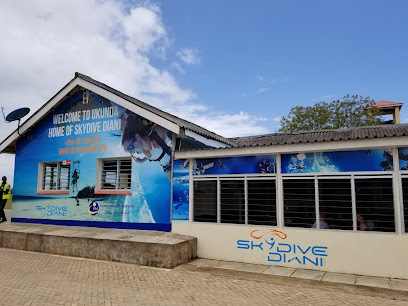
Diani Beach Shopping Centre
Explore the vibrant Diani Beach Shopping Centre for a diverse shopping experience combined with local culture, dining, and entertainment in a tropical paradise.
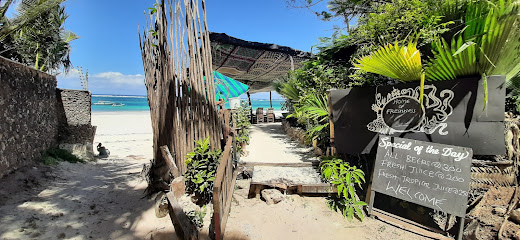
Diani Backpackers
Experience the vibrant energy of Diani Backpackers, where adventure meets community on the stunning shores of Diani Beach.
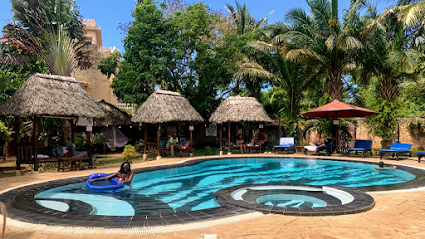
Unmissable attractions to see
Fort Jesus Museum
Discover the rich history and stunning architecture of Fort Jesus, a UNESCO World Heritage Site in Mombasa, a must-visit for every traveler.
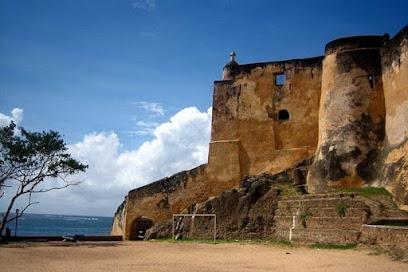
Haller Park
Experience the beauty and biodiversity of Haller Park in Mombasa, a remarkable eco-tourism destination for nature lovers and wildlife enthusiasts.
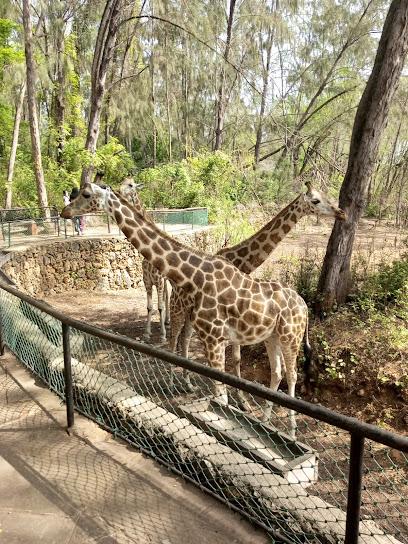
Wild Waters
Experience the ultimate fun and adventure at Wild Waters Mombasa, a premier water park with thrilling slides and relaxing pools.
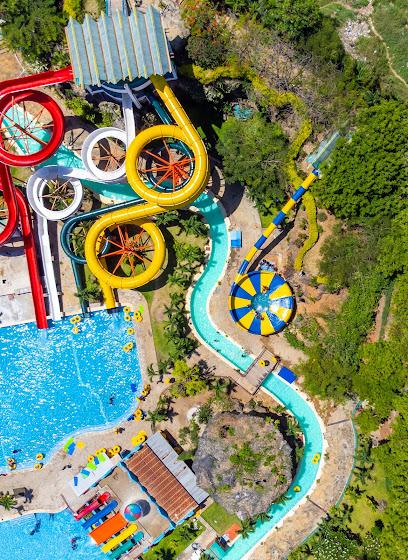
Nyali Beach
Discover the beauty of Nyali Beach, a stunning coastal paradise in Kenya, perfect for relaxation, adventure, and unforgettable experiences.
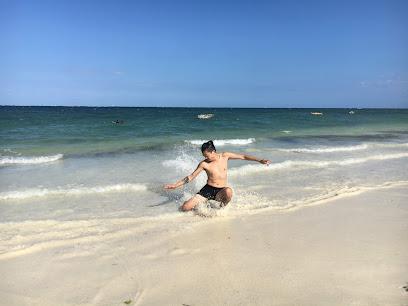
Mamba Village
Explore Mamba Village, Mombasa's premier animal park, where adventure meets education in a stunning natural setting.
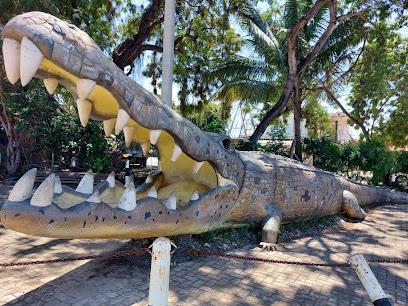
Mombasa Go-Kart and Adventure Park
Experience the thrill of racing and delicious dining at Mombasa Go-Kart and Adventure Park in Shanzu, perfect for families and adventure seekers.
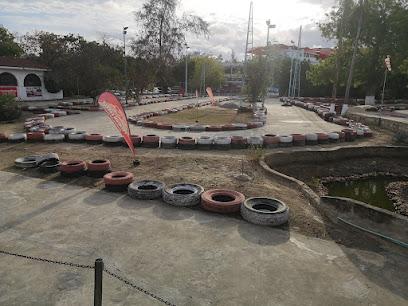
Shimoni Slave Caves
Discover the historical significance of the Shimoni Slave Caves, a captivating attraction on Kenya's coast that unveils the poignant past of the slave trade.
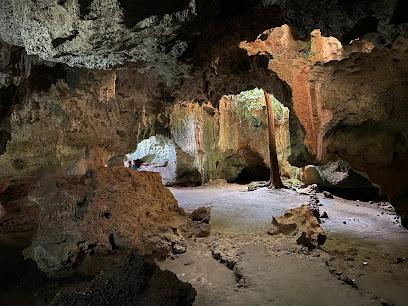
Shimba Hills National Reserve
Explore the lush landscapes and rich wildlife of Shimba Hills National Reserve, a must-visit national park in Kenya's coastal region.
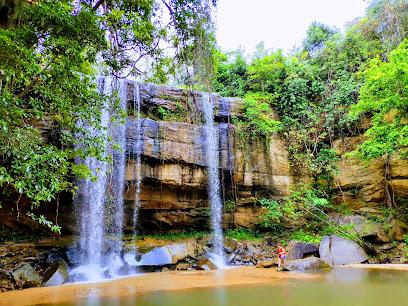
Nguuni Nature Sanctuary
Experience the beauty of wildlife and nature at Nguuni Nature Sanctuary in Mombasa, a perfect getaway for bird watchers and nature lovers alike.
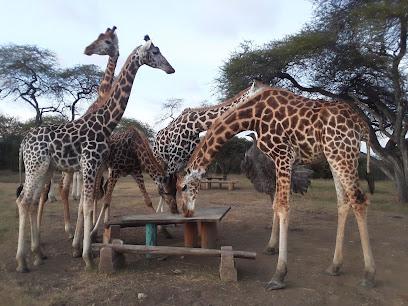
Wasini Island
Explore Wasini Island's stunning beaches, vibrant marine life, and rich cultural heritage in a serene tropical paradise.
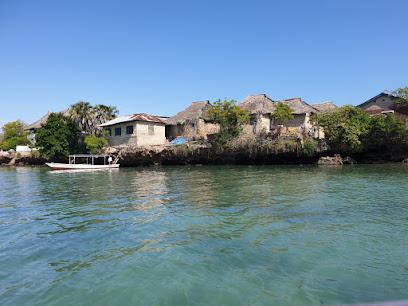
Kongo River Beach
Explore the tranquil beauty of Kongo River Beach, a hidden gem in Diani Beach, where relaxation meets adventure under the sun.
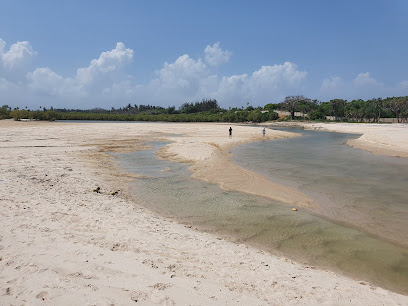
Shri Cutch Satsang Swaminarayan Temple
Explore the serene Shri Cutch Satsang Swaminarayan Temple in Mombasa, a stunning architectural gem and spiritual sanctuary reflecting rich Hindu heritage.
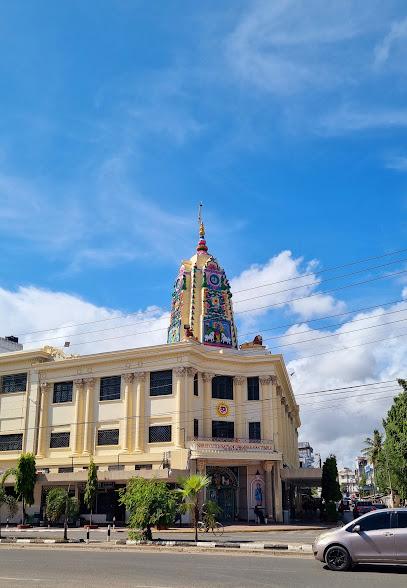
Colobus Conservation
Explore the heart of Kenya's wildlife preservation at Colobus Conservation, a sanctuary dedicated to the unique Colobus monkey and its ecosystem.
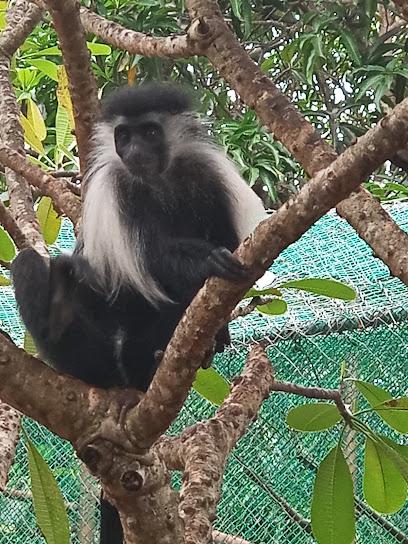
Kongo Mosque
Explore the Kongo Mosque in Kwale, a serene masterpiece of Islamic architecture and a cultural treasure in Kenya.
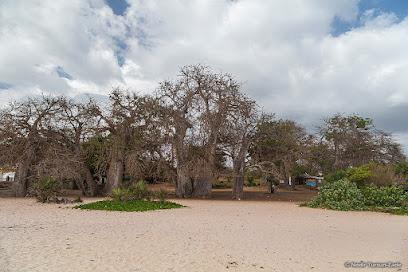
Sheldrick's Falls
Experience the breathtaking beauty of Sheldrick's Falls in Kwale, a serene oasis of nature perfect for relaxation and exploration.
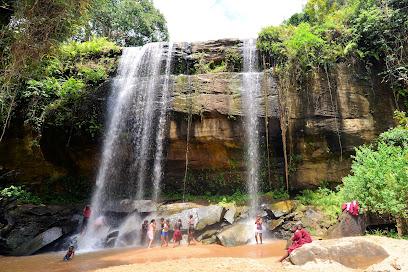
Essential places to dine
Nomad Beach Bar & Restaurant
Experience Diani's vibrant beach culture at Nomad Beach Bar & Restaurant—where exquisite flavors meet stunning ocean views.
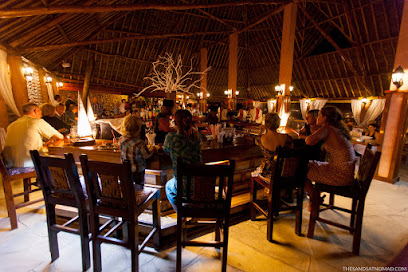
Leonardo's Restaurant
Experience authentic Italian cuisine and homemade ice cream at Leonardo's Restaurant in Diani Beach – a must-visit culinary haven.
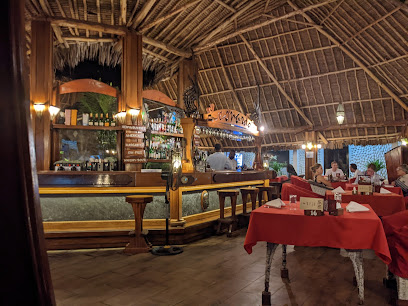
Coast Dishes Restaurant
Discover the essence of Kenyan coastal cuisine at Coast Dishes Restaurant in Diani Beach—where every meal is a celebration of flavor.
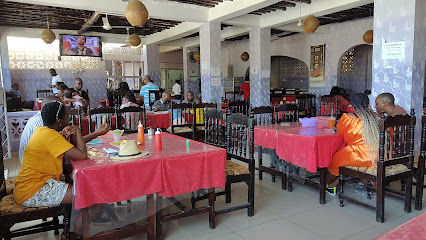
Ali Barbour's Cave Restaurant
Experience exquisite dining in Mombasa’s stunning coral cave at Ali Barbour’s Cave Restaurant, where every meal is a feast for the senses.
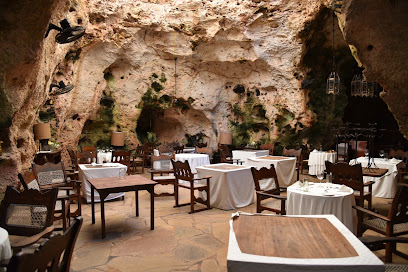
The Salty Squid Beach Bar & Restaurant
Experience coastal dining at The Salty Squid Beach Bar & Restaurant with fresh seafood and stunning ocean views in Diani Beach.
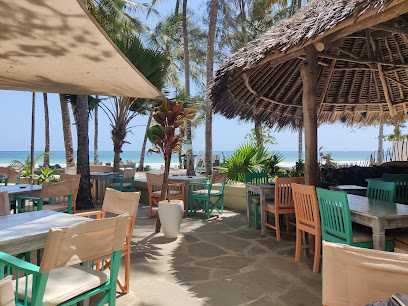
Tiki Bar
Experience the vibrant flavors and relaxing ambiance at Tiki Bar in Diani Beach - where every meal feels like a tropical getaway.
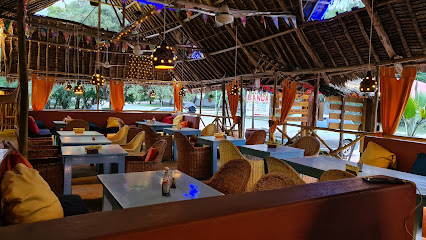
Havana Bar
Discover Havana Bar in Diani Beach: A vibrant restaurant offering delicious food and refreshing drinks amidst stunning ocean views.
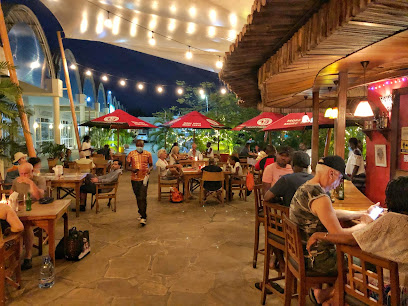
Java House
Experience culinary delight at Java House in Diani Beach - where local flavors meet international cuisine in a cozy setting.
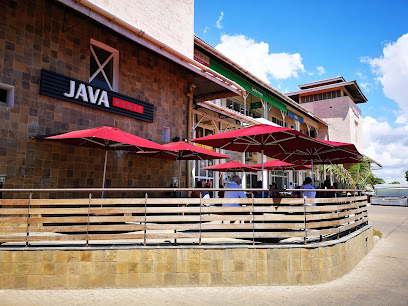
Rock Starz Village
Discover culinary delights at Rock Starz Village - your go-to restaurant and pub in Diani Beach for local flavors and vibrant atmosphere.
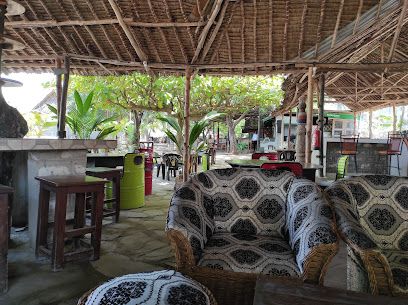
Ristorante Pizzeria Da Aniello
Experience authentic Italian flavors at Ristorante Pizzeria Da Aniello in Diani Beach – where every dish is crafted with passion.
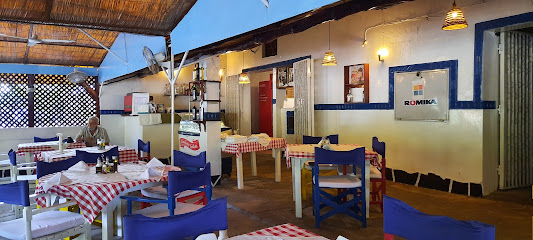
Jolly Pizzeria
Experience authentic Italian flavors at Jolly Pizzeria in Diani Beach – where every slice tells a story.
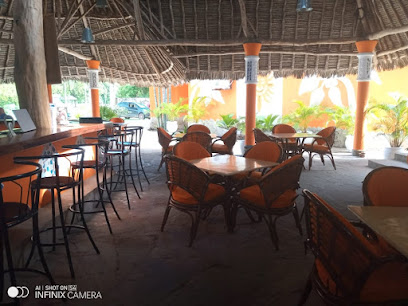
Apero
Discover the culinary delights of Apero in Diani Beach - where fresh ingredients meet vibrant flavors in a welcoming atmosphere.
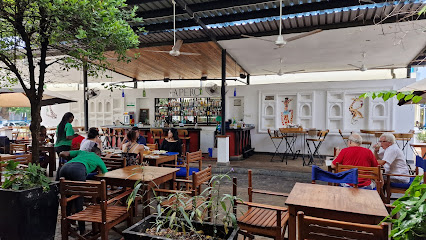
Shashin-ka
Discover Shashin-ka in Diani Beach: where authentic Japanese flavors meet breathtaking coastal views.
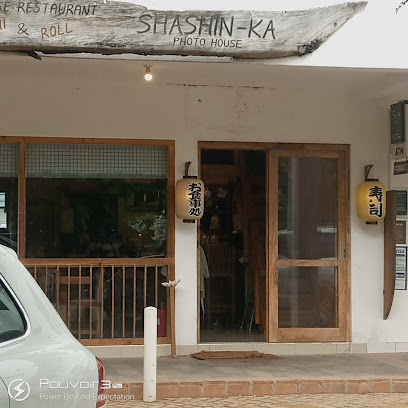
Sir William’s Grill Seafood Cafe
Experience the best seafood at Sir William's Grill Seafood Cafe in Diani Beach – fresh flavors with stunning ocean views await.
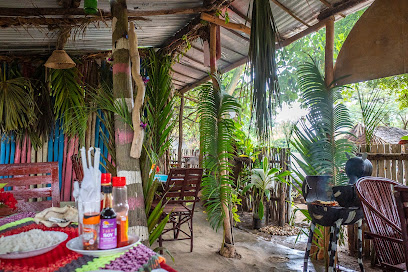
Mvureni Beach Bar and Restaurant
Discover the flavors of Africa at Mvureni Beach Bar and Restaurant on Diani's stunning Galu Beach.
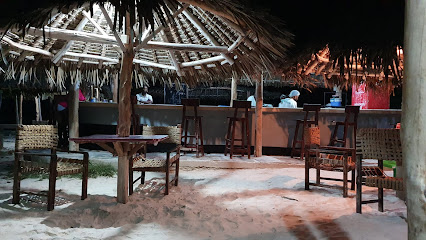
Markets, malls and hidden boutiques
Chandarana Foodplus
Discover the best local and international products at Chandarana Foodplus, the premier supermarket in Diani, Kenya.
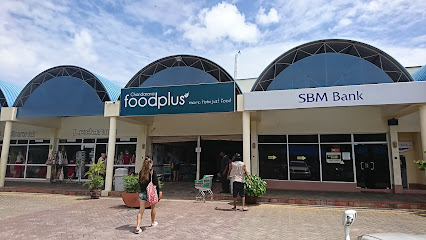
Carrefour
Discover a wide range of local and international products at Carrefour, your grocery destination in Diani Beach.
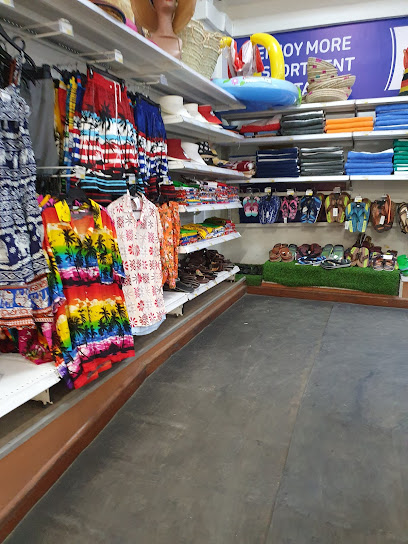
Diani Beach Shopping Centre
Explore Diani Beach Shopping Centre: Your gateway to local crafts, vibrant eateries, and an unforgettable shopping experience by the coast.
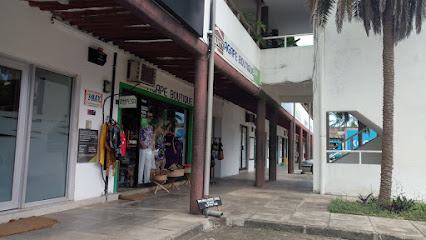
Ukunda-Diani Junction
Experience the vibrant shopping scene at Ukunda-Diani Junction, where local culture meets modern retail in the heart of Kenya's beautiful coast.
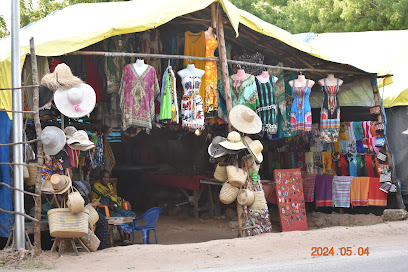
Film Nation Kenya
Discover the essence of Kenyan culture at Film Nation Kenya – a vibrant grocery store in the heart of Ukunda's Ibiza market.
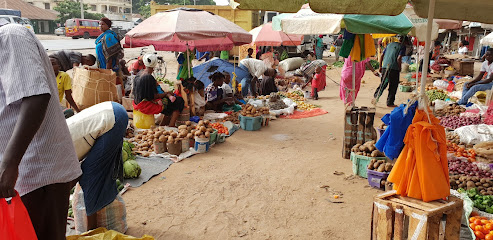
Muthaiga Mini Market
Discover local flavors and essentials at Muthaiga Mini Market, your go-to supermarket in Diani Beach.
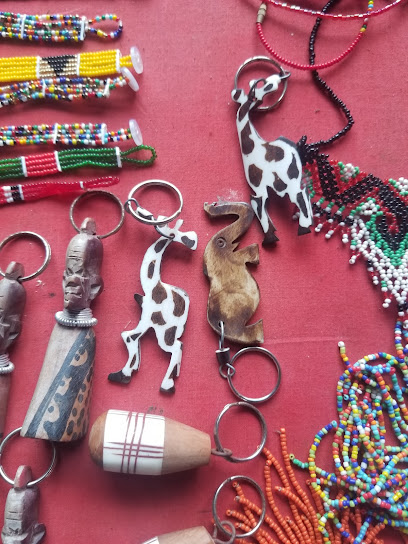
SAFARICOM SHOP
Explore Diani with seamless connectivity at Safaricom Shop, your trusted telecommunications provider in Kenya.
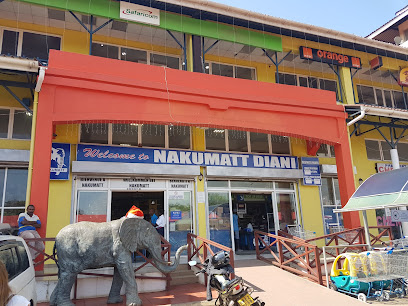
Centre Point
Discover the vibrant shopping experience at Centre Point in Diani Beach, offering a variety of retail, dining, and entertainment options for every tourist.
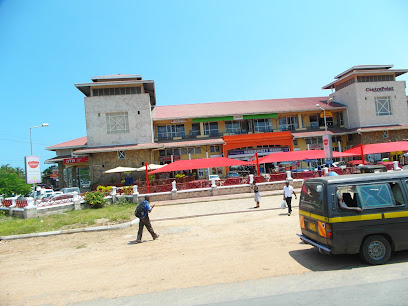
Shree Green Grocers supermarket
Discover the vibrant Shree Green Grocers Supermarket in Diani Beach, your go-to destination for fresh produce and local delicacies.
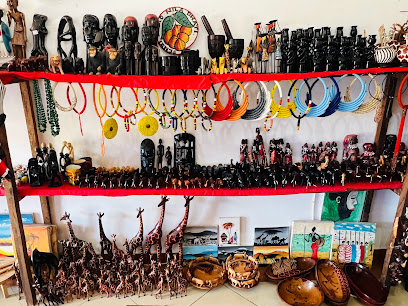
Homemade Icecream & Movie World Diani
Savor the finest homemade ice cream and enjoy a movie in the heart of Ukunda, Diani Beach's sweetest destination.
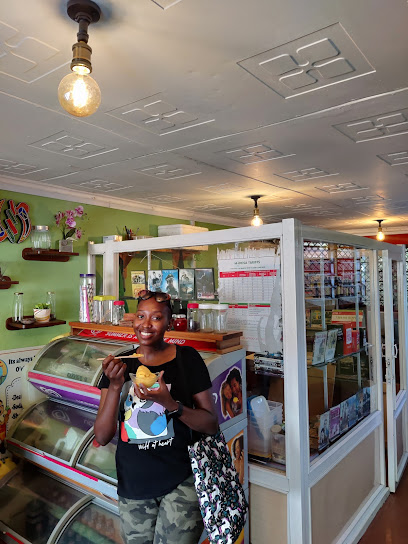
DIANI Bazaar
Explore Diani Bazaar: A colorful shopping haven on Diani Beach Road, offering local crafts, fashion, and delicious Kenyan cuisine.
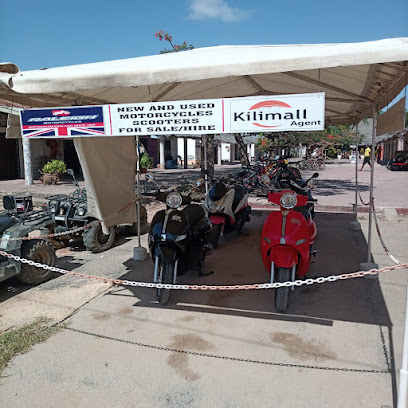
MOIZ BOUTIQUE LTD DIANI
Explore Moiz Boutique Ltd, a treasure trove of fashion accessories and souvenirs, capturing the essence of Diani Beach's vibrant culture.
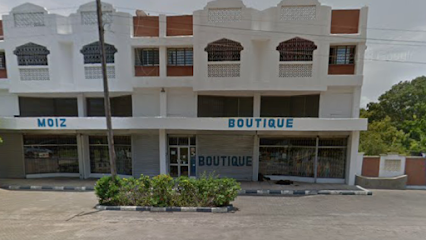
KFI Boutique
Discover unique handcrafted treasures at KFI Boutique in Diani Beach, where local culture meets exceptional craftsmanship.
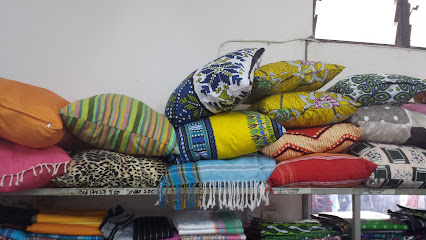
Diani Baby Shop
Explore Diani Baby Shop in Ukunda, where stylish children's clothing and essentials meet quality and charm in a delightful shopping experience.
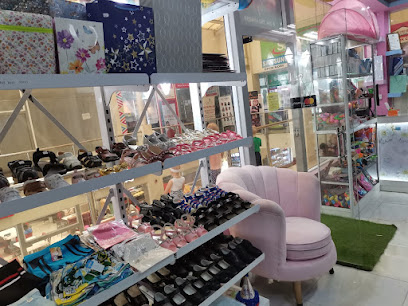
DIANI HARDWARE & GENERAL STORES LTD
Discover Diani Hardware & General Stores for all your practical needs while enjoying the beautiful Diani coastline!
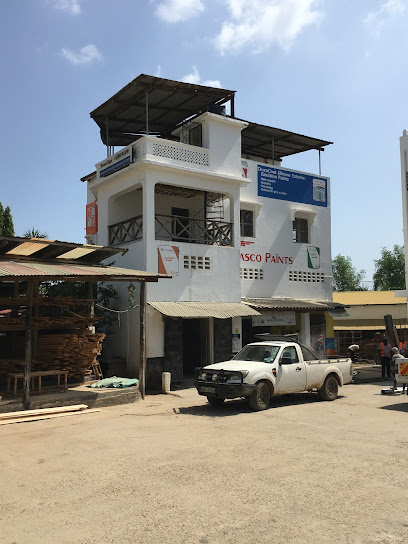
Essential bars & hidden hideouts
Nomad Beach Bar & Restaurant
Discover the ultimate beachside escape at Nomad Beach Bar & Restaurant, where delightful cuisine meets stunning ocean views in Diani Beach, Kenya.
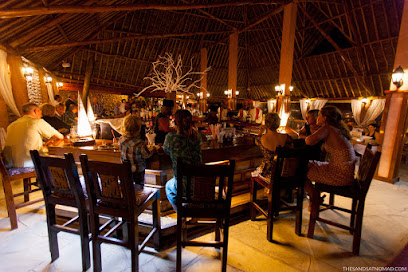
Ali Barbour's Cave Restaurant
Discover the enchanting Ali Barbour's Cave Restaurant, where exquisite cuisine meets a breathtaking underground ambiance in Mombasa.
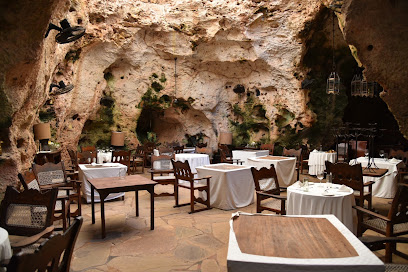
Tandoori Baharini lounge
Discover Tandoori Baharini Lounge, a vibrant bar in Diani Beach offering refreshing drinks, local ambiance, and stunning sunset views.
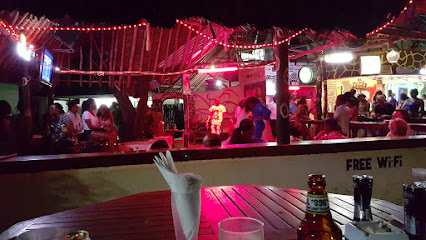
The Salty Squid Beach Bar & Restaurant
Experience the vibrant atmosphere and exquisite flavors of The Salty Squid Beach Bar & Restaurant on Diani Beach.
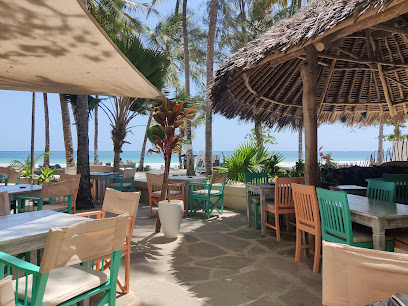
Tiki Bar
Discover the vibrant Tiki Bar in Diani Beach, where tropical flavors meet a relaxed atmosphere for an unforgettable dining experience.
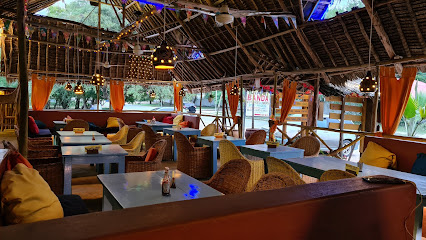
Havana Bar
Discover the vibrant Havana Bar at Diani Beach, a perfect blend of local flavors, refreshing cocktails, and stunning ocean views.
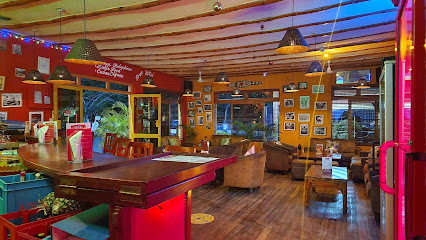
Shakatak Disco
Experience the vibrant nightlife of Diani Beach at Shakatak Disco, where music, dancing, and unforgettable moments await you.
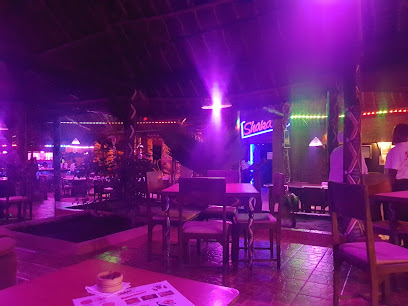
Jolly Pizzeria
Experience the best of Italian cuisine at Jolly Pizzeria, a cozy eatery in Diani Beach offering delicious pizzas and pasta dishes.
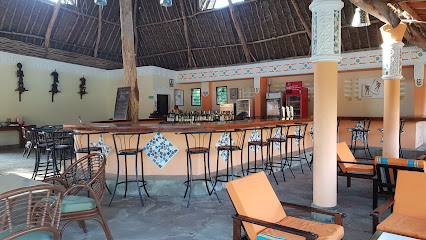
Mvureni Beach Bar and Restaurant
Experience authentic African cuisine at Mvureni Beach Bar and Restaurant, a coastal paradise offering fresh seafood and breathtaking ocean views.
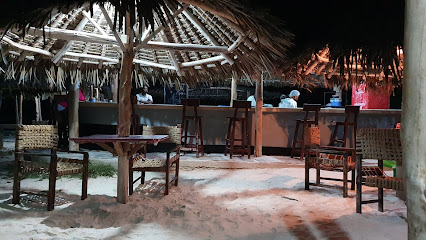
Sizzlers Steak House and Pub
Experience the best steaks in Diani Beach at Sizzlers Steak House and Pub, where quality meets vibrant nightlife and exceptional service.
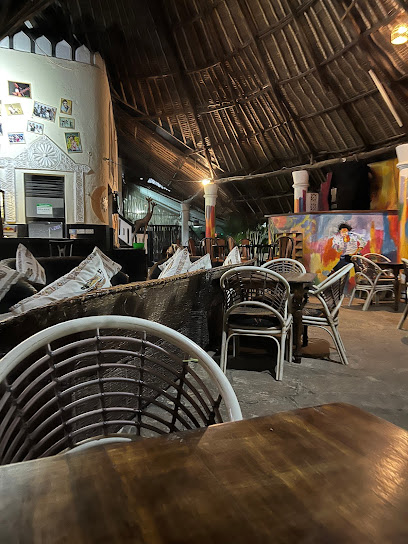
Amigos Beach Bar And Restaurant
Experience the vibrant flavors and stunning views at Amigos Beach Bar and Restaurant, a must-visit culinary gem on Diani Beach.
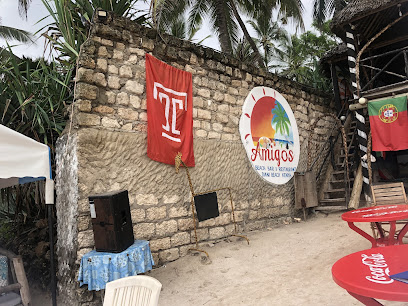
Mwaepe Fisherman Beach Restaurant
Experience the best of coastal cuisine at Mwaepe Fisherman Beach Restaurant, where fresh seafood meets stunning ocean views.
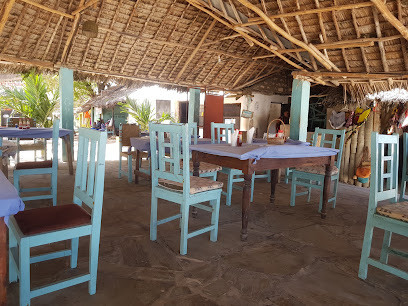
Funky Monkey Cocktail Bar & Restaurant
Experience the vibrant flavors of Diani Beach at Funky Monkey Cocktail Bar & Restaurant, where coastal dining meets exotic cocktails.
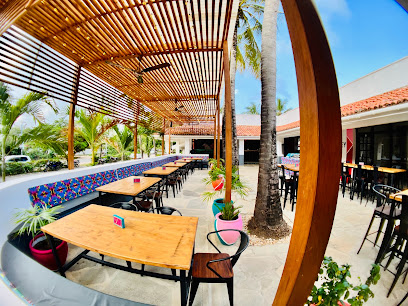
Estuary Beach Restaurant & Bar
Savor exquisite local and international cuisine with stunning views at Estuary Beach Restaurant & Bar in Diani Beach.
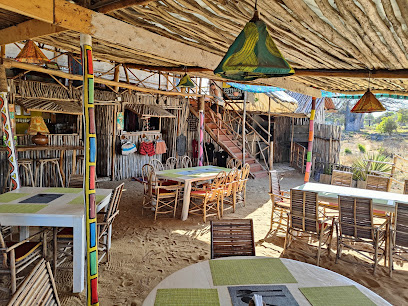
Local Phrases
-
- HelloJambo
[jahm-boh] - GoodbyeKwaheri
[kwah-heh-ree] - YesNdiyo
[uhn-dee-yoh] - NoHapana
[hah-pah-nah] - Please/You're welcomeTafadhali
[tah-fah-dah-lee] - Thank youAsante
[ah-sahn-teh] - Excuse me/SorrySamahani
[sah-mah-hah-nee] - How are you?Uko vipi?
[oo-koh vee-pee] - Fine. And you?Nzuri. Wewe?
[n-zoo-ree. weh-weh] - Do you speak English?Unazungumza Kiingereza?
[oo-nah-zoon-goom-zah kee-een-geh-reh-zah] - I don't understandSielewi
[see-leh-wee]
- HelloJambo
-
- I'd like to see the menu, pleaseNingependa kuona menyu, tafadhali
[nee-ngeh-pehn-dah kwoh-nah meh-nyoo, tah-fah-dah-lee] - I don't eat meatSi kula nyama
[see koo-lah nyah-mah] - Cheers!Mambo!
[mahm-boh] - I would like to pay, pleaseNingependa kulipa, tafadhali
[nee-ngeh-pehn-dah koo-lee-pah, tah-fah-dah-lee]
- I'd like to see the menu, pleaseNingependa kuona menyu, tafadhali
-
- Help!Msaada!
[msah-ah-dah] - Go away!Nenda zako!
[nen-dah zah-koh] - Call the Police!Piga polisi!
[pee-gah poh-lee-see] - Call a doctor!Piga daktari!
[pee-gah dahk-tah-ree] - I'm lostNimepotea
[nee-meh-poh-teh-ah] - I'm illNinaumwa
[nee-nah-oom-wah]
- Help!Msaada!
-
- I'd like to buy...Ningependa kununua...
[nee-ngeh-pehn-dah koo-noo-noo-ah] - I'm just lookingNatazama tu
[nah-tah-zah-mah too] - How much is it?Bei ni ngapi?
[bay nee ngah-pee] - That's too expensiveHiyo ni ghali sana
[hee-yoh nee ghah-lee sah-nah] - Can you lower the price?Unaweza kupunguza bei?
[oo-nah-weh-zah koo-poon-goo-zah bay]
- I'd like to buy...Ningependa kununua...
-
- What time is it?Saa ngapi?
[sah ngah-pee] - It's one o'clockSaa moja
[sah moh-jah] - Half past (10)Nusu saa (kumi)
[noo-soo sah (koo-mee)] - MorningAsubuhi
[ah-soo-boo-hee] - AfternoonMchana
[m-chah-nah] - EveningJioni
[joh-nee] - YesterdayJana
[jah-nah] - TodayLeo
[leh-oh] - TomorrowKesho
[keh-shoh] - 1Moja
[moh-jah] - 2Mbili
[m-bee-lee] - 3Tatu
[tah-too] - 4Nne
[n-neh] - 5Tano
[tah-noh] - 6Sita
[see-tah] - 7Saba
[sah-bah] - 8Nane
[nah-neh] - 9Tisa
[tee-sah] - 10Kumi
[koo-mee]
- What time is it?Saa ngapi?
-
- Where's a/the...?Iko wapi...?
[ee-koh wah-pee] - What's the address?Anuani ni ipi?
[ah-noo-ah-nee nee ee-pee] - Can you show me (on the map)?Unaweza kunionyesha (kwenye ramani)?
[oo-nah-weh-zah koo-nee-oh-nyeh-shah (kweh-neh rah-mah-nee)] - When's the next (bus)?Basi la pili lini?
[bah-see lah pee-lee lee-nee] - A ticket (to ....)Tiketi (kwenda ....)
[tee-keh-tee (kwehn-dah)]
- Where's a/the...?Iko wapi...?
History of Diani Beach
-
Diani Beach and its surrounding areas have been part of the Swahili Coast, a stretch that has been inhabited by the Swahili people for over a thousand years. These ancient communities were known for their maritime trade, connecting African, Arab, Persian, and Indian cultures. Archaeological sites such as Kaya Kinondo, a sacred forest for the Mijikenda people, provide a glimpse into the rich cultural heritage of the area.
-
In the early 16th century, the Portuguese arrived on the East African coast and established several outposts. While Diani Beach itself did not host any major Portuguese settlements, its proximity to Mombasa, where the Portuguese Fort Jesus still stands, meant that the area felt the impacts of Portuguese colonial ambitions. The Portuguese controlled the coastal trade routes for nearly two centuries before being ousted by the Omani Arabs.
-
Following the decline of Portuguese power, the Omani Arabs took control of the coastal regions, including the area around Diani Beach. This period saw an increase in the trade of spices, ivory, and slaves. The Omani influence is still evident in the architecture and cultural practices along the Swahili Coast. The Shirazi Arabs, believed to be descendants of early Persian settlers, also contributed to the rich tapestry of Diani’s cultural history.
-
In the late 19th century, Diani Beach, along with the rest of Kenya, came under British colonial rule. The British established a railway system that connected the interior of Kenya to the coastal cities, facilitating the movement of goods and people. During this period, Diani remained relatively undeveloped but benefited from the overall infrastructural advancements made by the British.
-
Kenya gained independence from British colonial rule in 1963, and Diani Beach began to develop as a tourist destination. The Kenyan government and private investors recognized the area's potential, leading to the establishment of luxury resorts, hotels, and other tourist amenities. The beautiful white sandy beaches, coral reefs, and diverse marine life have made Diani Beach a sought-after destination for international tourists.
-
Modern-day Diani Beach not only thrives as a tourist hotspot but also as a center for cultural and environmental conservation. Efforts to preserve the local Mijikenda culture, including the sacred Kaya forests, are ongoing. Organizations and local communities work together to protect the marine ecosystems, coral reefs, and endangered species such as sea turtles. These conservation efforts ensure that the natural beauty and cultural heritage of Diani Beach are preserved for future generations.
Diani Beach Essentials
-
Diani Beach is located on the southeastern coast of Kenya, approximately 30 kilometers south of Mombasa. The nearest airport is Moi International Airport in Mombasa. From the airport, you can take a taxi or shuttle service to Diani Beach, which is about a 1 to 1.5-hour drive. Alternatively, you can fly to Ukunda Airport, which is closer to Diani Beach, though it mainly serves domestic flights. There are also bus and train services from Nairobi to Mombasa, from where you can continue to Diani Beach by road.
-
In Diani Beach, you can get around using taxis, tuk-tuks (three-wheeled vehicles), or boda-bodas (motorcycle taxis). Tuk-tuks are widely available and offer a convenient and affordable way to navigate the area. There are also car rental services if you prefer to drive yourself. For local trips, walking is a viable option as many attractions and amenities are located within a short distance of each other.
-
The official currency in Kenya is the Kenyan Shilling (KES). Credit cards are accepted in most hotels, larger restaurants, and shops, but it is advisable to carry cash for smaller establishments and local markets. ATMs are available in Diani Beach, but be sure to notify your bank of your travel plans to avoid any issues with card transactions. Currency exchange services are also available at banks and exchange bureaus.
-
Diani Beach is generally considered safe for tourists, but it is important to stay vigilant. Avoid walking alone on the beach at night and be cautious of your surroundings. There have been reports of petty crimes such as pickpocketing and bag snatching, particularly in crowded areas. It is advisable to keep your valuables secure and avoid displaying expensive items. The neighborhoods around Ukunda town can be less safe, so exercise extra caution if visiting these areas.
-
In case of emergency, dial 999 or 112 for immediate assistance. There are local police stations and medical facilities in Diani Beach. Diani Beach Hospital and Palm Beach Hospital are among the main healthcare providers. It is highly recommended to have travel insurance that covers medical emergencies. For minor health issues, there are pharmacies in the area where you can purchase over-the-counter medications.
-
Fashion: Do dress modestly, especially when visiting local villages or religious sites. Avoid overly revealing clothing. Religion: Do respect local customs and traditions. Remove your shoes when entering someone's home or a mosque. Public Transport: Do be polite and respectful to drivers and fellow passengers. Don’t haggle aggressively with tuk-tuk or boda-boda drivers; negotiate fares politely. Greetings: Do greet people with a handshake and a smile. Using 'Jambo' (Hello) is a common and friendly greeting. Eating & Drinking: Do try local dishes and accept food graciously. Don’t refuse hospitality, as it can be considered impolite.
-
To experience Diani Beach like a local, visit the vibrant Diani Beach Art Gallery and Ukunda Market for a taste of local culture and crafts. Engage with locals, many of whom are eager to share insights about their community and traditions. Don't miss out on trying Swahili dishes like pilau and samosas at local eateries. For a unique adventure, explore the nearby Shimba Hills National Reserve or take a dhow boat trip for a serene experience on the Indian Ocean.
Trending Landmark in Diani Beach
-
Baobab Beach Resort & Spa
-
Swahili Beach Resort
-
Southern Palms Beach Resort
-
Diani Reef Beach Resort & Spa
-
Diani Sea Lodge
-
Nomad Beach Bar & Restaurant
-
Nomad Beach Resort
-
Ali Barbour's Cave Restaurant
-
Bahari Dhow Beach Villas
-
Tandoori Baharini lounge
-
Tiki Bar
-
Shimba Hills National Reserve
-
Diani Airport
-
Diani Beach Shopping Centre
-
Diani Backpackers
Nearby Cities to Diani Beach
-
Things To Do in Mombasa
-
Things To Do in Tanga
-
Things To Do in Malindi
-
Things To Do in Stone Town
-
Things To Do in Zanzibar City
-
Things To Do in Lamu
-
Things To Do in Moshi
-
Things To Do in Dar es Salaam
-
Things To Do in Arusha
-
Things To Do in Morogoro
-
Things To Do in Nairobi
-
Things To Do in Dodoma
-
Things To Do in Naivasha
-
Things To Do in Singida
-
Things To Do in Iringa








